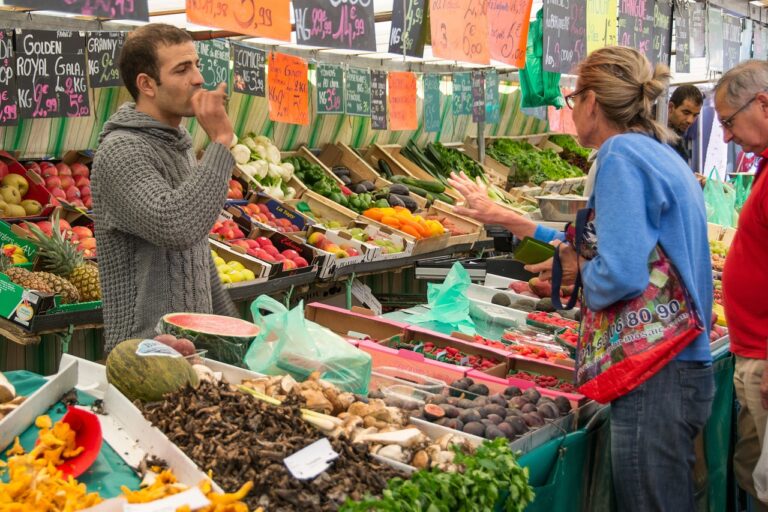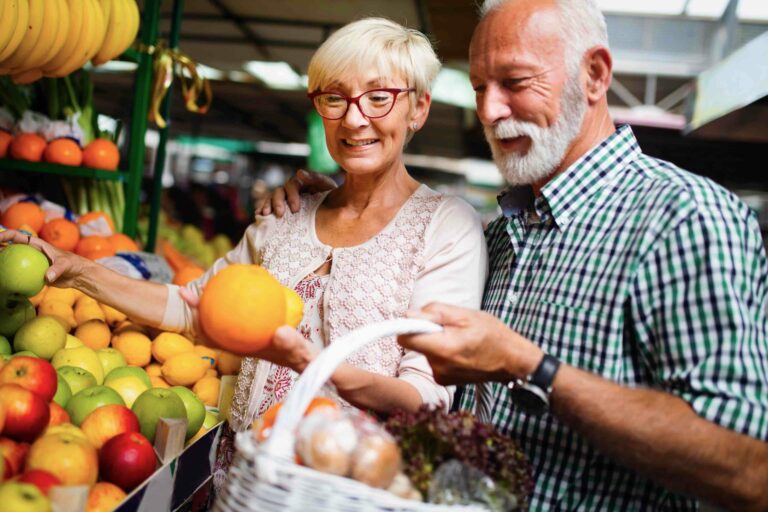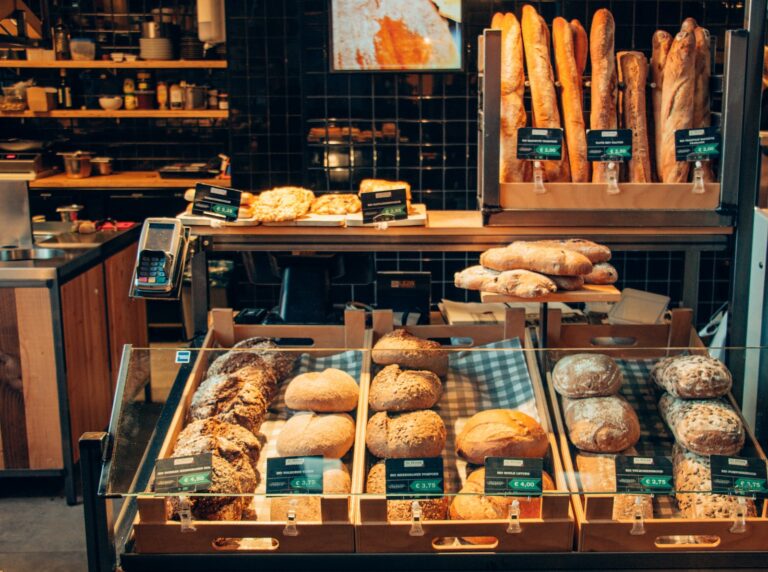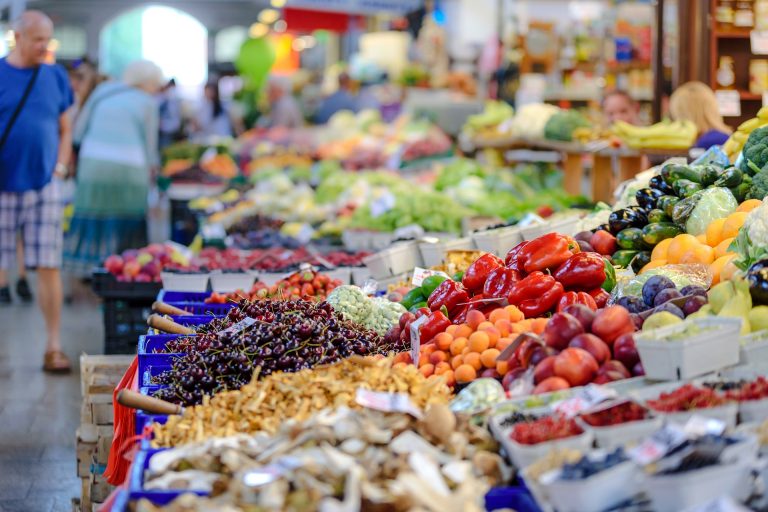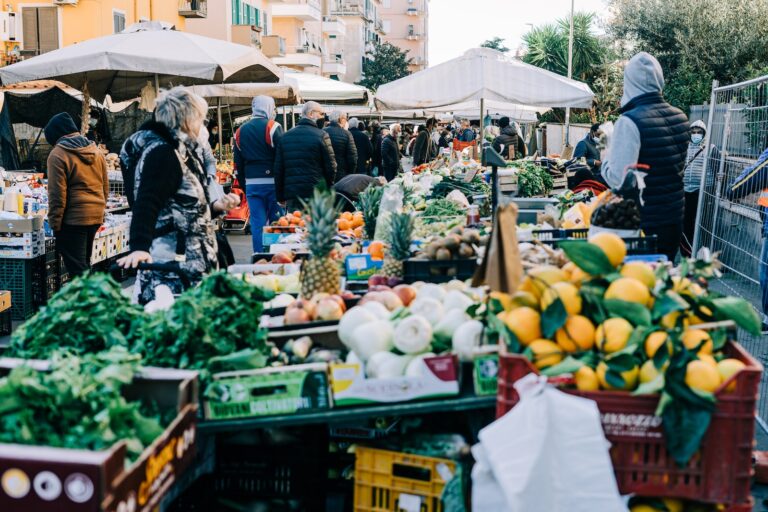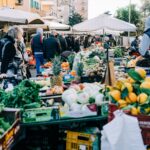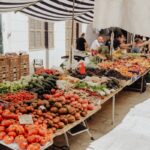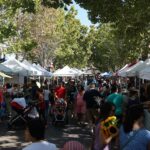Are you in the market for high-quality leather goods? Look no further than your local farmers market!
While farmers markets are typically known for fresh produce and artisanal crafts, many also offer a wide range of leather products that are not only stylish but also ethically sourced.
When you buy leather goods at a farmers market, you can rest assured that you are supporting local artisans and small businesses.
Unlike mass-produced items found in big retail stores, the leather goods you find at farmers markets are often handcrafted with care and attention to detail.
This means that each piece is unique and made with love, resulting in a product that is not only beautiful but also durable.
In addition to supporting local businesses, buying leather goods at a farmers market gives you the opportunity to have a more personalized shopping experience.
Many vendors are passionate about their craft and are happy to share their knowledge and expertise with customers.
Whether you’re looking for a specific item or simply browsing, you can ask questions, learn about different leather types and production methods, and even have items customized to your liking.
So, the next time you’re in the market for leather goods, why not skip the big box stores and head to your local farmers market?
Not only will you find unique and high-quality products, but you’ll also be supporting local artisans and fostering a sense of community.
Happy shopping!
Table of Contents
Finding the Best Leather Goods in Your Local Farmers Market
If you’re looking to buy some high-quality leather goods while supporting local artisans, your local farmers market can be a great place to start. Here are a few tips to help you find the best leather goods at your local market:
- Explore the Market: Take your time to wander around the market and check out different vendors. Look for stalls that specialize in handmade leather goods or showcase unique designs.
- Talk to the Artisans: Engage with the artisans and ask about their leather goods. They can provide valuable information about the materials used, the craftsmanship involved, and any special features or benefits of their products. This interaction can also give you a sense of the vendor’s passion and expertise.
- Inspect the Quality: When browsing through the leather goods, pay close attention to the quality of the craftsmanship. Examine the stitching, finishing, and overall attention to detail. Quality leather goods should feel sturdy, have consistent coloring, and show signs of careful construction.
- Check the Materials: Inquire about the type of leather used in the products. Full-grain leather is generally considered the highest quality, as it retains the natural grain and texture of the leather. Other options like top-grain or genuine leather can also be of good quality, but avoid products made from bonded or faux leather.
- Consider Sustainability: If sustainability is important to you, ask about the sourcing of the leather. Some artisans may use ethically sourced or vegetable-tanned leather, which reduces environmental impact. Supporting these eco-friendly practices can be a great way to make a positive contribution.
- Try Before Buying: If possible, try on or handle the leather goods before making a purchase. This allows you to assess the fit, comfort, and functionality of the product. For items like belts or wallets, make sure they are sized appropriately and have enough compartments for your needs.
Remember, farmers markets are ever-changing, so the selection of leather goods may vary each time you visit. Enjoy the experience of discovering unique pieces and supporting local artisans who put their heart and soul into their craft.
| Tips for Finding the Best Leather Goods |
|---|
| Explore the Market |
| Talk to the Artisans |
| Inspect the Quality |
| Check the Materials |
| Consider Sustainability |
| Try Before Buying |
Happy hunting for your perfect leather treasure at your local farmers market!
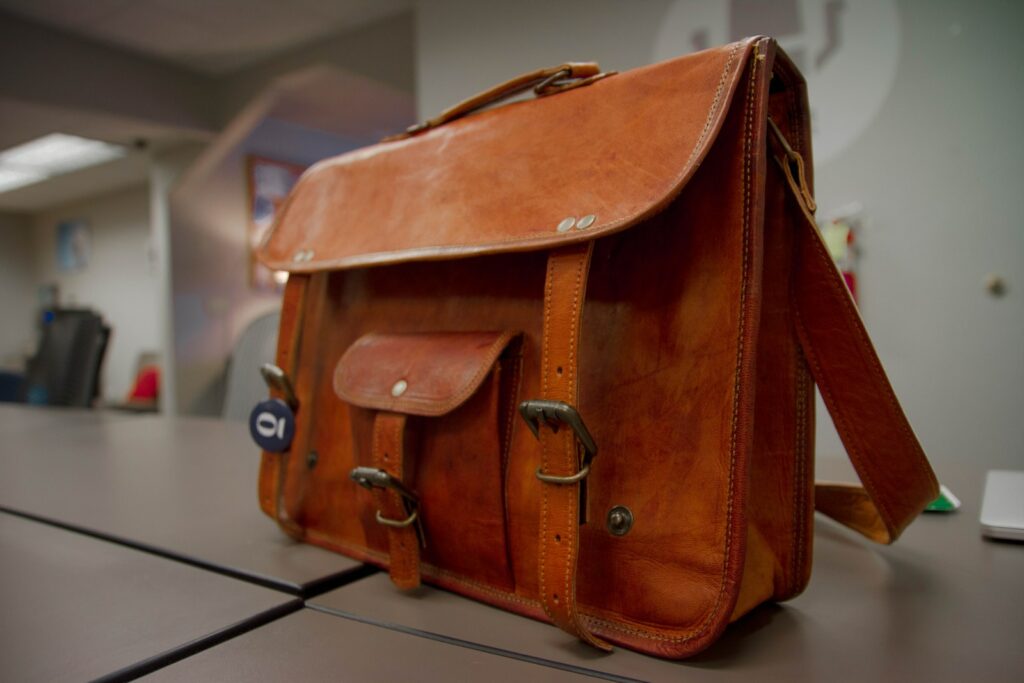
Explore the Variety of Leather Products Available at Farmers Markets
Farmers markets are not only a great place to find fresh produce and unique crafts, but they also offer a diverse range of leather goods. Whether you’re a fan of timeless, classic pieces or prefer something more contemporary, farmers markets have something to satisfy every taste. Here are a few reasons why exploring the variety of leather products at farmers markets is worth your while:
- Handcrafted Excellence: At farmers markets, you’ll find leather goods that are lovingly handcrafted by skilled artisans. These passionate craftsmen and women put their heart and soul into every piece, ensuring exceptional quality and attention to detail.
- One-of-a-Kind Finds: Tired of mass-produced items? Farmers markets are treasure troves of unique and one-of-a-kind leather products. From stylish bags and wallets to belts, shoes, and accessories, you’ll discover items that reflect the individuality and creativity of their makers.
- Support Local Businesses: By purchasing leather goods at farmers markets, you’re supporting local businesses and artisans directly. Your purchase helps them sustain their craft, promotes job opportunities within the community, and contributes to the local economy.
- Affordable Luxury: Farmers markets offer leather products at competitive prices, often more affordable than those found in traditional retail stores. This means you can indulge in the luxury of genuine leather without breaking the bank.
- Environmentally Conscious: Many leather products at farmers markets are made from sustainable and ethically sourced materials. By shopping at farmers markets, you can feel good knowing that you’re making a conscious choice to support environmentally responsible practices.
- Tailored to Your Taste: Farmers markets cater to a diverse clientele, and you’ll find leather products in a wide range of styles, colors, and designs. Whether you prefer a rustic, vintage look or a sleek, modern aesthetic, there’s something for everyone.
Remember, when shopping for leather goods at farmers markets, take your time to explore each vendor’s offerings, ask questions, and appreciate the craftsmanship behind each piece. Enjoy the experience of finding that perfect leather item that truly speaks to you while supporting local artisans and businesses.
The Benefits of Buying Leather Goods Directly from Farmers Markets
When it comes to shopping for leather goods, farmers markets might not be the first place that comes to mind. However, there are several benefits to buying leather goods directly from farmers markets that you might not be aware of. Here are a few reasons why you should consider this option:
- Supporting Local Artisans: By purchasing leather goods at farmers markets, you are directly supporting local artisans and craftsmen. These skilled individuals put their heart and soul into creating high-quality leather products, and buying from them ensures that their talent and hard work is recognized and appreciated.
- Unique and Handcrafted Products: Leather goods found at farmers markets are often unique and one-of-a-kind. Because they are made by local artisans, you won’t find these pieces in mass-produced department stores. Each item carries the artisan’s personal touch and creativity, making it a special addition to your collection.
- Value for Money: Buying leather goods directly from farmers markets can often offer better value for your money compared to big-brand retailers. Since there are no middlemen involved, you can get a high-quality product at a more affordable price. Plus, you can negotiate with the artisans themselves, enabling you to strike a fair deal and potentially get a customized item.
- Environmentally Friendly: Supporting local artisans at farmers markets means you are contributing to sustainable consumer practices. Unlike mass-produced leather goods, the items found at farmers markets are typically made from ethically sourced materials and crafted using traditional techniques. By reducing the demand for factory-made products, you play a role in protecting the environment.
So, next time you’re in the market for leather goods, don’t overlook the farmers market. Not only will you be bringing home a unique and well-crafted item, but you’ll also be supporting local artisans and embracing sustainable shopping practices.
| Benefit | Description |
|---|---|
| Supporting Local Artisans | Buying from farmers markets supports local artisans and recognizes their talent and hard work. |
| Unique and Handcrafted | Leather goods from farmers markets are one-of-a-kind, carrying the artisan’s personal touch and creativity. |
| Value for Money | Farmers market prices often offer better value due to the absence of middlemen, making it more affordable. |
| Environmentally Friendly | Sustainable practices are promoted as farmers market leather goods are ethically sourced and traditionally crafted. |
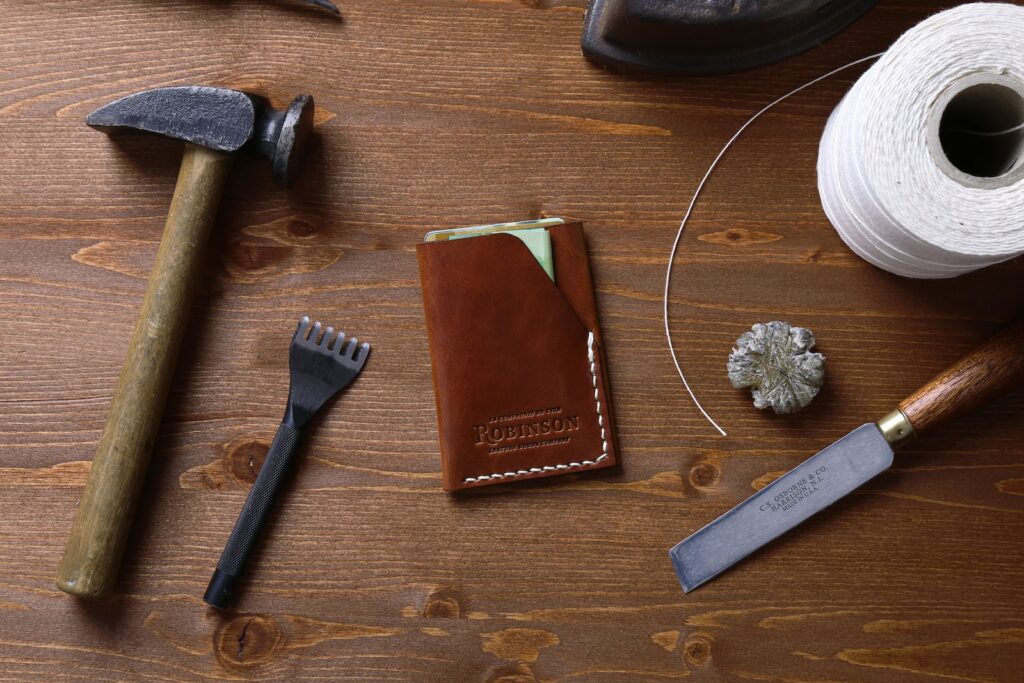
Supporting Local Artisans: A Reason to Buy Leather Goods at Farmers Markets
Farmers markets are not just a place to buy fresh produce and homemade treats. They also provide a unique opportunity to support local artisans and discover beautifully crafted leather goods. When you choose to buy leather goods at farmers markets, you are not only getting a high-quality product, but you are also directly contributing to the growth and sustainability of local artisans. Here’s why supporting these talented craftsmen and craftswomen is a meaningful choice:
1. Preserving Traditional Craftsmanship
At farmers markets, you can find leather goods made by skilled artisans who are passionate about preserving traditional craftsmanship techniques. These artisans dedicate their time and expertise to create unique, handcrafted pieces that reflect their cultural heritage and individual creativity. By purchasing from them, you are helping to ensure that these traditional skills are passed down through generations and kept alive.
2. Building a Stronger Community
By buying leather goods at farmers markets, you are investing in your local community. Small-scale artisans often face challenges in competing with mass-produced items. Your support helps them sustain their businesses, create employment opportunities, and contribute to the local economy. Additionally, it fosters a sense of community pride, as these artisans become an integral part of your neighborhood’s cultural fabric.
3. Promoting Sustainable Practices
Many local artisans prioritize sustainability in their work. They often use ethically sourced and environmentally friendly materials, ensuring that their leather goods have a low impact on the planet. By purchasing their products, you are aligning yourself with these sustainable practices and encouraging others to do the same, promoting a more conscious approach to consumption.
4. Personalized and Unique Creations
When you buy leather goods from local artisans at farmers markets, you can be confident that you are purchasing something truly unique. These artisans infuse their creativity and passion into each piece, resulting in one-of-a-kind items that stand out from mass-produced alternatives. Whether it’s a hand-stitched wallet or a beautifully designed bag, you can enjoy a personal connection to the product and flaunt your individuality.
Supporting local artisans by buying leather goods at farmers markets is an investment in quality craftsmanship, community development, sustainable practices, and individual style. So, the next time you visit your local market, take a moment to appreciate the incredible work of these artisans and consider bringing home a special leather piece that supports both your style and your community.
| Reasons to Buy Leather Goods at Farmers Markets |
|---|
| ✔ Preserves traditional craftsmanship |
| ✔ Builds a stronger community |
| ✔ Promotes sustainable practices |
| ✔ Offers personalized and unique creations |
How to Evaluate the Quality of Leather Goods at Farmers Markets
When it comes to buying leather goods at farmers markets, it’s important to know how to evaluate their quality. Here are a few tips to help you make an informed decision:
- Check the Leather: Start by examining the leather closely. Good quality leather should feel supple and smooth to the touch. Avoid leather that feels stiff, rough, or has visible cracks.
- Inspect the Stitching: Take a close look at the stitching on the leather goods. The stitches should be uniform, tight, and without any loose threads. Uneven or loose stitching can indicate poor craftsmanship.
- Look for Imperfections: Natural leather can have some natural imperfections, which can add character to the product. However, excessive imperfections such as deep scars, blemishes, or discoloration may indicate lower quality leather.
- Assess the Smell: Genuine leather should have a distinct, pleasant smell, similar to that of a new pair of shoes or a leather jacket. Avoid any leather goods with a strong chemical or artificial odor, as they may be made from synthetic materials.
- Examine the Hardware: Pay attention to the hardware used on the leather goods. Buckles, zippers, and clasps should be sturdy, well-functioning, and made from quality materials. Check for any signs of corrosion or flimsiness.
- Ask Questions: Don’t hesitate to engage with the vendor and ask questions about the leather goods. Inquire about the type of leather used, the tanning process, and any care instructions. A knowledgeable and transparent vendor is often indicative of higher quality products.
Remember, while farmers markets can offer unique and handmade leather goods, it’s essential to evaluate their quality before making a purchase. By following these tips, you can ensure that you’re investing in leather goods that are not only stylish but also long-lasting.
| Leather Feel | Supple and smooth |
| Stitching | Uniform and tight |
| Imperfections | Natural character |
| Smell | Pleasant and real |
| Hardware | Sturdy and functional |

Understanding the Process of Leather Goods Production at Farmers Markets
At farmers markets, you can find a variety of leather goods that are handmade with care and attention. Understanding the process behind the production of these leather goods can give you a deeper appreciation for the craftsmanship involved. In this section, we will walk you through the step-by-step process of creating leather goods at farmers markets.
1. Sourcing High-Quality Leather
The first step in leather goods production is sourcing high-quality leather hides. Farmers market artisans often work closely with local farmers and tanneries to obtain the best quality leather. This ensures that the final products are durable and long-lasting.
2. Designing and Cutting
Once the leather is sourced, artisans carefully design their products. They take into consideration functionality, aesthetics, and customer preferences. After finalizing the design, they proceed to cut the leather using sharp tools and templates. Precision is crucial to ensure consistent results.
3. Stitching and Assembling
With the leather pieces cut, artisans move on to stitching and assembling the products. This can involve hand-stitching or using high-quality sewing machines. The stitching process plays a significant role in determining the strength and durability of the finished leather goods.
4. Adding Finishing Touches
After the basic structure is completed, artisans focus on adding finishing touches to their products. This includes edge trimming, burnishing, and polishing. These steps enhance the appearance and longevity of the leather goods.
5. Quality Control
Before making their way to the farmers market, all leather goods undergo a meticulous quality control process. Artisans inspect each item carefully, ensuring that it meets their high standards. Any imperfections are addressed and rectified to ensure customer satisfaction.
6. Showcasing at Farmers Markets
Finally, the finished leather goods are displayed at farmers markets. Artisans set up their booths or stalls, ready to showcase their creations to the public. These markets provide an excellent opportunity for customers to meet the artisans in person, ask questions, and purchase their preferred leather goods.
The process of leather goods production at farmers markets combines traditional craftsmanship with a personal touch. With an emphasis on quality and attention to detail, artisans create unique and refined leather goods that you can proudly own and enjoy for years to come.
Choosing the Right Leather Goods for Your Needs at Farmers Markets
When it comes to shopping for leather goods at farmers markets, it’s essential to know what to look for to ensure you get the best quality items that meet your needs. Whether you’re in the market for a new handbag, belt, wallet, or any other leather product, here are a few tips to help you make the right choice:
1. Check the leather quality: Examine the leather closely to determine its quality. Look for full-grain or top-grain leather as they are the most durable and long-lasting options. Avoid products made from bonded or genuine leather, as they are generally of lower quality.
2. Assess the craftsmanship: Pay attention to the craftsmanship of the leather goods. Look for well-stitched seams, strong hardware, and well-finished edges. Quality craftsmanship ensures that the product will hold up well over time.
3. Feel the leather texture: Touch the leather to assess its texture. High-quality leather should feel smooth, supple, and have a natural grain pattern. Be wary of leather that feels rough, stiff, or overly shiny, as it may be of inferior quality.
4. Consider the functionality: Think about how you plan to use the leather goods. Are you looking for a spacious handbag, a slim wallet, or a sturdy belt? Consider the functionality you need and ensure that the product meets your requirements, whether it’s the right size, has enough compartments, or suits your style.
5. Support local artisans: Farmers markets often showcase the craftsmanship of local artisans. By purchasing leather goods from these vendors, you not only get unique and handcrafted products but also support the local economy. Take the opportunity to chat with the artisans, learn about their processes, and appreciate their work.
6. Compare prices: While quality comes at a price, it’s always a good idea to compare prices at different vendors within the farmers market. This way, you can ensure that you’re getting a fair deal for the quality of the leather goods you are purchasing.
In summary, when choosing leather goods at farmers markets, remember to check the leather quality, assess the craftsmanship, feel the leather texture, consider functionality, support local artisans, and compare prices. By keeping these tips in mind, you can make an informed decision and find the perfect leather goods that meet your needs and style.
| Tips for Choosing Leather Goods at Farmers Markets |
|---|
| 1. Check the leather quality |
| 2. Assess the craftsmanship |
| 3. Feel the leather texture |
| 4. Consider the functionality |
| 5. Support local artisans |
| 6. Compare prices |
Tips for Negotiating Prices when Buying Leather Goods in Farmers Markets
When it comes to buying leather goods in farmers markets, negotiating prices can help you get the best deal. Here are some handy tips to help you navigate this process:
- Do your research: Before heading to the farmers market, take some time to research current market prices for the leather goods you are interested in. This will give you a good starting point for negotiations and help you understand a fair price range.
- Arrive early: Getting to the farmers market early can be advantageous. Sellers might be more willing to negotiate lower prices in the morning when business is just starting. Plus, if you’re the first customer, you may have more bargaining power.
- Building rapport: Establishing a friendly and respectful relationship with the seller can increase your chances of successful negotiations. Engage in small talk, show genuine interest in their products, and ask questions. This can create a positive atmosphere and make the seller more open to lowering prices.
- Bundle purchases: Buying multiple items from the same seller can give you some leverage to negotiate a better deal. Sellers may be more willing to offer discounts when they see you’re interested in buying multiple leather goods.
- Inspect the quality: Carefully examine the leather goods you’re interested in purchasing. Look for any imperfections, such as scratches or discoloration, and point them out politely to the seller. This can be a valid reason to request a lower price.
- Be polite and reasonable: Approach negotiations with a friendly and respectful attitude. Avoid being too aggressive or demanding, as this can create tension and hinder your chances of getting a good deal. Instead, make a reasonable offer and be open to counteroffers.
Remember, negotiating prices at farmers markets is a mutual agreement between the buyer and seller. Finding a middle ground that benefits both parties is the key to successful negotiations.
| No. | Tip |
|---|---|
| 1. | Do your research |
| 2. | Arrive early |
| 3. | Building rapport |
| 4. | Bundle purchases |
| 5. | Inspect the quality |
| 6. | Be polite and reasonable |
By following these tips, you can maximize your chances of scoring a great deal when buying leather goods at farmers markets. Happy negotiating!
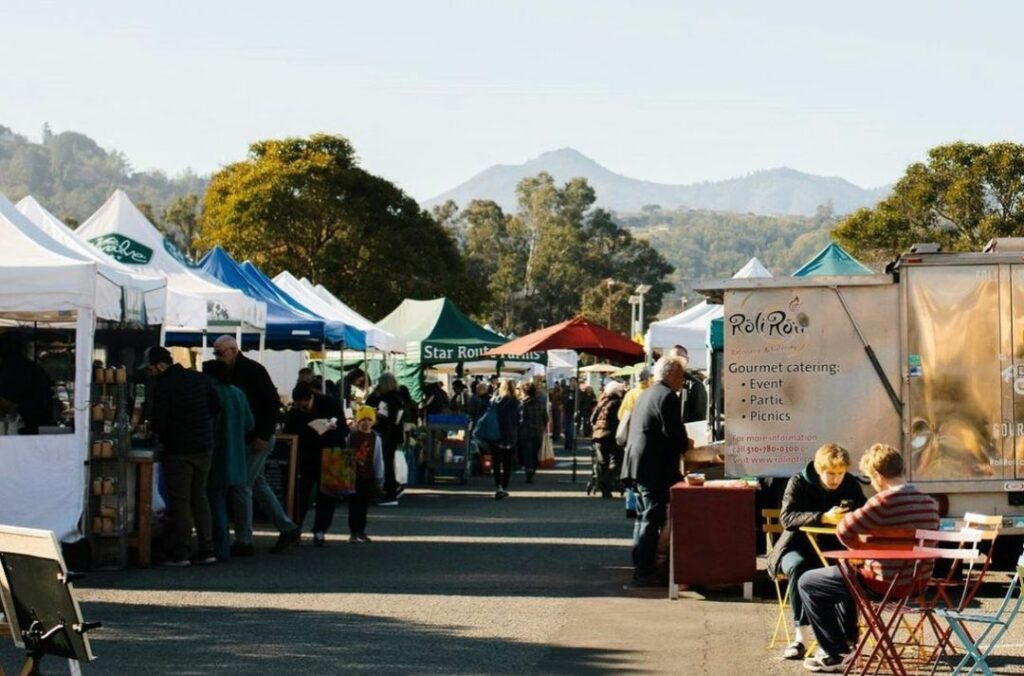
Caring for Your Leather Goods Purchased from Farmers Markets
Leather goods are not only stylish but also durable, making them a great investment. If you’ve purchased leather goods from a farmers market, it’s important to take proper care of them to ensure their longevity. Here are a few tips to help you keep your leather goods in top condition:
- Avoid direct sunlight: Leather can fade and lose its luster when exposed to direct sunlight for prolonged periods. To prevent this, store your leather goods in a cool, dry place away from windows or use UV protection to shield them.
- Keep it clean: Regularly wipe your leather goods with a soft, dry cloth to remove any dirt or dust. If your leather item gets stained, consult a professional leather cleaner or use mild soap and water to spot clean. Always test in an inconspicuous area first.
- Condition regularly: Leather needs to stay moisturized to prevent cracking. Apply a leather conditioner once every few months, following the manufacturer’s instructions. Gently massage the conditioner into the leather using circular motions and let it absorb for the recommended time.
- Handle with care: Leather can be prone to scratches and scuffs. Avoid rough handling and be mindful of sharp objects that could cause damage. If you notice any small scratches, try buffing them gently with a leather conditioner or seek professional advice.
Remember, each piece of leather is unique, and it may have specific care instructions provided by the seller or manufacturer. Always follow those instructions to ensure the best care for your leather goods.
| Care Tip | Description |
|---|---|
| Avoid direct sunlight | Protect your leather goods from fading by storing them away from windows or using UV protection. |
| Keep it clean | Wipe away dirt and dust regularly using a soft, dry cloth. Spot clean with mild soap and water if necessary. |
| Condition regularly | Maintain the leather’s moisture by applying a leather conditioner every few months. Follow manufacturer’s instructions. |
| Handle with care | Prevent scratches and scuffs by handling your leather goods gently and avoiding contact with sharp objects. |
By following these simple care tips, your leather goods purchased from farmers markets can last for many years, aging gracefully and acquiring their own unique character. Enjoy the beauty and durability of your leather items and continue supporting local artisans at your favorite farmers market!
Note: Leather care can vary depending on the type and finish of the leather. Always refer to specific care instructions given by the seller or manufacturer.
Conclusion: Embrace the Unique Value of Leather Goods from Farmers Markets
When it comes to shopping for leather goods, farmers markets offer a unique and rewarding experience. From the quality craftsmanship to the sustainable practices, there are several reasons why you should consider buying leather goods from farmers markets. Let’s take a closer look at the benefits:
- Quality Craftsmanship: Leather goods found at farmers markets are often handmade by skilled artisans. These craftsmen and craftswomen take pride in their work, ensuring that each piece is crafted with care and attention to detail. Unlike mass-produced items, these leather goods are made with love and passion, resulting in high-quality products that are built to last.
- Supporting Local Businesses: By purchasing leather goods from farmers markets, you are directly supporting local artisans and small businesses. These individuals pour their heart and soul into their craft, and your purchase helps them sustain their livelihood. It’s a great feeling to know that your money is going towards supporting the local economy and preserving traditional craftsmanship.
- Sustainable and Ethical Practices: Farmers markets are known for promoting sustainable and ethical practices. Many leather goods found in farmers markets are made from ethically sourced materials, such as vegetable-tanned leather. This means that no harmful chemicals are used in the tanning process, making these products better for the environment and safer for you to use.
- Unique and One-of-a-Kind: Farmers markets are a treasure trove of unique and one-of-a-kind items, and leather goods are no exception. You’ll find a variety of styles, designs, and colors that you won’t find in your average retail store. From hand-tooled belts to intricately crafted wallets, there’s something for everyone’s taste and preference.
- Personal Connection: When you buy leather goods from farmers markets, you have the opportunity to meet and interact with the artisans themselves. They can tell you about their inspiration, their techniques, and the story behind each piece. This personal connection adds value to your purchase, making it a more meaningful and memorable experience.
Embrace the unique value of leather goods from farmers markets and enjoy the benefits of supporting local artisans, owning high-quality sustainable products, and adding a touch of individuality to your style. Visit your local farmers market and discover the world of exceptional leather craftsmanship!


